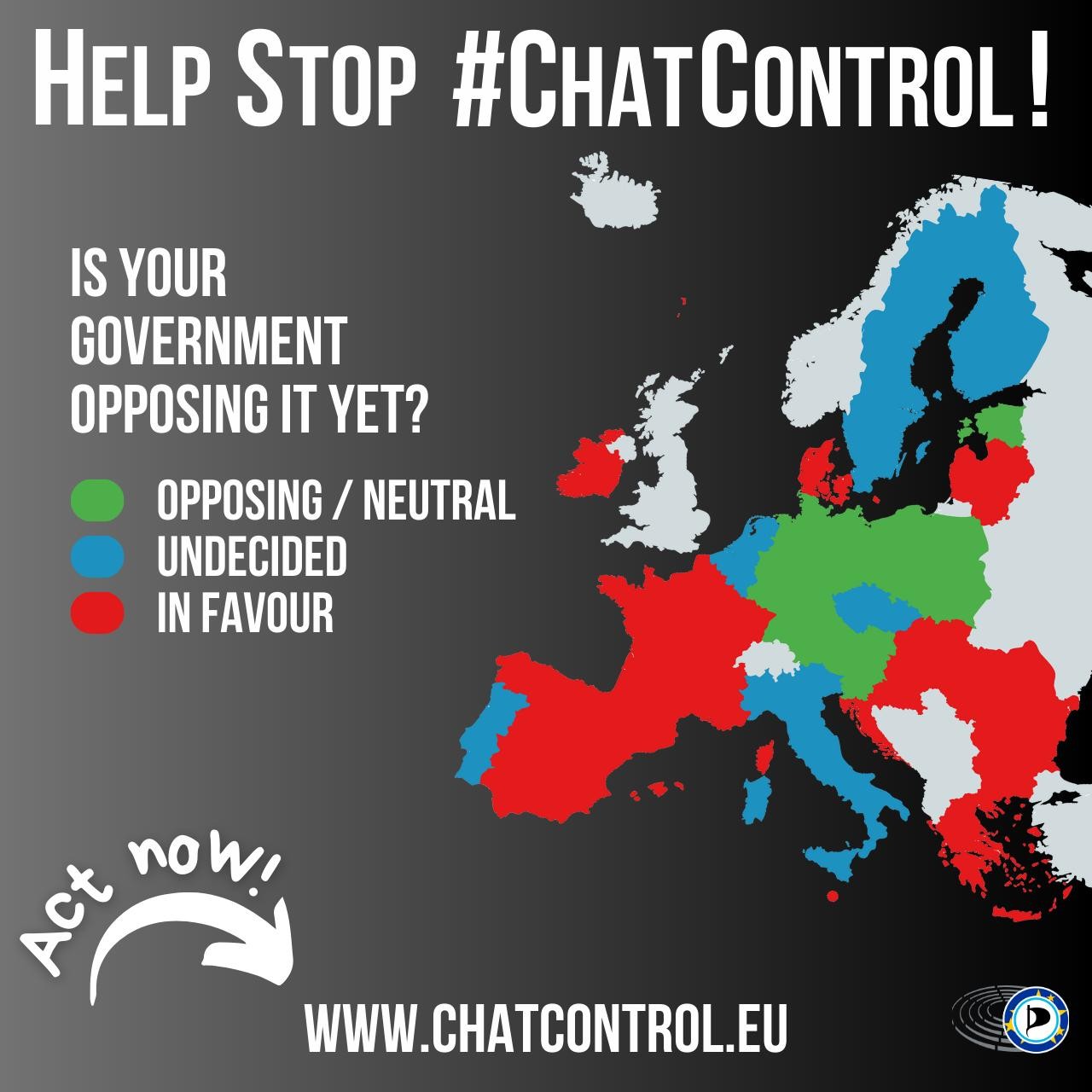Patrick Breyer (@echo_pbreyer@digitalcourage.social)
digitalcourage.socialLeak on latest #ChatControl attempt (in German): https://netzpolitik.org/2024/interne-dokumente-sperrminoritaet-gegen-chatkontrolle-wackelt/ +++ Only AUT, DEU, EST, LUX, POL, SVN were critical – no blocking minority! +++ BEL, CZE, FIN, ITA, NLD, PRT, SWE undecided +++ EU legal experts confirm violation of our fundamental rights +++ Only 5 days to next discussion +++
Help pressure our governments into defending our #privacy of correspondence and secure #encryption now: https://www.patrick-breyer.de/en/take-action-to-stop-chat-control-now/
A place to discuss privacy and freedom in the digital world.
Privacy has become a very important issue in modern society, with companies and governments constantly abusing their power, more and more people are waking up to the importance of digital privacy.
In this community everyone is welcome to post links and discuss topics related to privacy.
Some Rules
- Posting a link to a website containing tracking isn’t great, if contents of the website are behind a paywall maybe copy them into the post
- Don’t promote proprietary software
- Try to keep things on topic
- If you have a question, please try searching for previous discussions, maybe it has already been answered
- Reposts are fine, but should have at least a couple of weeks in between so that the post can reach a new audience
- Be nice :)
Related communities
much thanks to @gary_host_laptop for the logo design :)
- 0 users online
- 108 users / day
- 435 users / week
- 1.32K users / month
- 4.54K users / 6 months
- 1 subscriber
- 4.54K Posts
- 115K Comments
- Modlog






Translation of parts from the German netzpolitik.org article:
Other states also reject the current proposal. Six states "stated that they could not agree to the proposal due to fundamental concerns.
[…]
The Legal Service of the EU member states supports the critics. Last year, the experts came to the conclusion that chat control is contrary to fundamental rights and will fail in court. These concerns have “still not been dispelled”. The lawyers also believe “that the proposal would not stand up to judicial review” - i.e. it is illegal.
[…] If either France or Italy - or two states from the Netherlands, Belgium and the Czech Republic - reject the new proposal, there will still be no majority in the Council.
[…] The Hungarian Council Presidency is sticking to its optimistic timetable. Hungary actually wanted to “further negotiate the proposal at a technical level”. That would be the Council working group on criminal prosecution. It met today, but did not discuss the chat control. Instead, the advisors for justice and home affairs are to negotiate the Hungarian proposal on Monday. If Hungary has its way, the Permanent Representatives will then decide on the Council’s position, followed by the Justice and Home Affairs Ministers on October 10. France and Sweden are “explicitly” in favor.